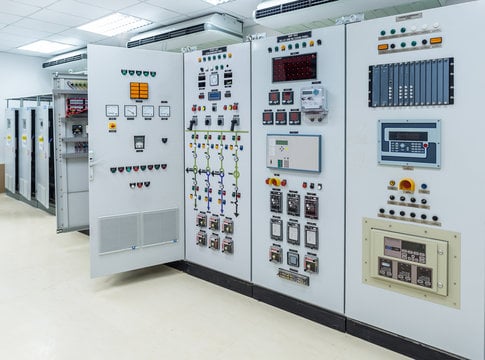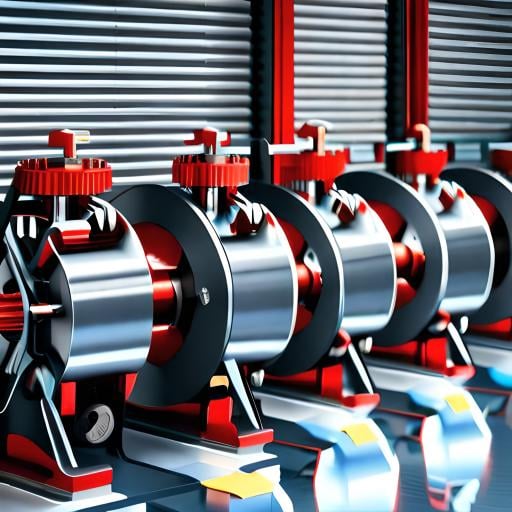Improving energy efficiency is the cleanest, cheapest, and fastest method of acquiring dependable electricity. Motors account for approximately 46% of global power usage and 69% of industrial energy use. Energy usage is one of the most severe concerns for many enterprises. Inadequate architecture and power usage must be addressed first. Poor design and abuse are largely responsible for high energy expenditures and the inability to supply the expanding demand for power. Most motors operate between 50 and 100 percent of rated load, although the most efficient operation occurs at 75% of rated load and decreases with age. After 50% load, an electric motor’s efficiency begins to fall automatically.
Four Factors Affecting Motor Performance
Inadequate power quality has a direct correlation with motor performance: transients, imbalance, sags, swells, and harmonics can cause severe damage and, in extreme cases, motor failure.
The impact of torque on overall efficiency and performance: When a motor creates rotational force to drive a mechanical load at the rated speed of the spinning shaft. The electric motor runs at torque speed at the specified frequency, delivering consistent performance. Torque measurement offers a clear indicator of the electric motor’s condition.
The electric motor’s operational characteristics and expected performance: Overloading the motor mechanically produces stress on motor components such as the coupling, bearings, and insulation, which affects the motor’s efficiency and leads to malfunction or premature failure.
In the end, direct effect on motor performance: Data collection is the initial stage in predictive and preventative maintenance.
75% of industrial motor failures result in 1 to 6 days of annual plant downtime. 90% of motor failures happened within a month after the first warning, and 36% occurred within a single day. To prevent motor failure and operational issues Regular evaluations, analyses, inspections, and audits can aid in minimizing electrical motor issues and enhancing motor performance and dependability.
Statistical Information Regarding the Improvement of Motor Performance:
68% improvement in the performance of an induction motor over a period of 53 years (1960 to 2013). To increase the annual efficiency of electrical induction motors, losses must be decreased. The energy efficiency of induction motors has increased throughout time (data of 45 kW, 4p design motor). CareLabs tests the performance and longevity of electrical motors in a range of commercial and industrial applications. We check and identify issues, so aiding you in minimizing losses and enhancing motor performance. Our objective as knowledgeable and seasoned experts is to give exceptional services to our clients.
Advantages of Using CareLabs' Services:
- Constantly assume responsibility for our job.
- Provide exceptional client service.
- Responding quickly to talks.
- Our staff is strengthened with the acquisition of a skilled and trustworthy electrician.
- Understanding of Dutch Standards.
- Schedule a convenient appointment time.
- Generate a digital report outlining each section to your satisfaction.
Methods for Conducting Audits of Electrical Motor Efficiency:
- Before commencing the audit, we collect all site-related documentation for research reasons.
- To enhance your standing, create a one-line diagram and a check-off list.
- Proceed with the audit with the electrical motor inspection checklist
- After completing the checklist, electrical motors are analyzed and tested by professionals.
- Collect inspection records for electric motors.
- Ensure there is no load flow or power quality issues.
- If any issues are identified, our expert will guarantee that they are remedied.
- Confirm that your engine fulfils national efficiency regulations.
- Provide a digital report and suggestions for safe work methods.
CareLabs offers motor acceleration analysis to guarantee that the motor performs properly under maximum load circumstances and to boost productivity (by mitigating the losses). Reducing motor losses increases motor dependability. In every major city in the Netherlands, including Amsterdam, Rotterdam, The Hague, and Utrecht, we provide motor start analysis services. Contact CareLabs for further information and a quotation on auditing the efficiency of industrial electric motors.




